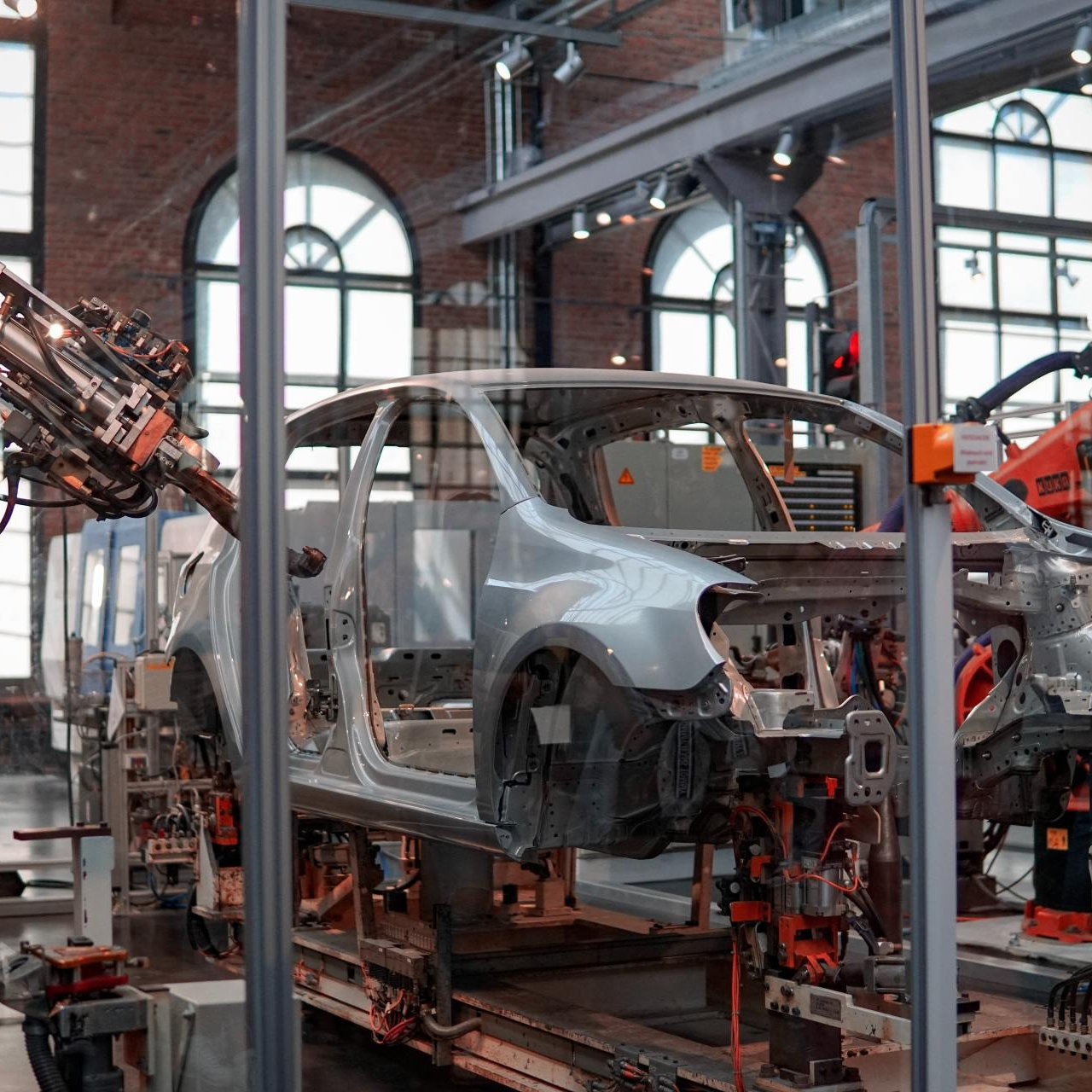Blog-Layout
Car parts manufacturer caught in the commoditisation trap
Kenny Arzo • May 26, 2020
Today, I came across this article on Reuters
about problems at car parts manufacturer Benteler. It caught my attention not only due to the business strategy questions it raises, but also due to an emotional connection I have to the company: Benteler was my first employer. And it was a great place to start my career. Surrounded by top industry professionals, I quickly found myself on a tremendously enriching learning curve – and building friendships with colleagues with whom I am still in contact today.
So it is sad to read classic financial press copy like “compounding problems at the family-owned company”, “ill-fated U.S. expansion”, and “restructuring talks with creditors” about a company I owe so much to. It certainly seems like there is a political issue, too: I can understand why the German government might not be so keen to help out a company which fled to neighbouring Austria on a corporate tax dodge and has now come back begging for cash… I think the really interesting question, though, is just what happened to such a large-scale and highly-professional global operation – a textbook example of German family-owned business success – to reach such an unfortunate state?
Well, here is my opinion – not as “insider” anymore, but as someone who knows the company and its market well.
So let’s start by looking at that market. For decades, Automotive was a continuous growth market in which well-established, globally-active automotive suppliers were able to participate by expanding their manufacturing capacities and growing with the OEMs. This dynamic started to change in 2017, however, in line with shifting customer behaviour. Car ownership among the younger generations started to decrease and in recent years, new business models catering to those who do not buy and run their own vehicles have sprung up, especially in larger cities: car-sharing providers, rent-a-bike schemes, ride-hailing apps. What is more, the new millennium has brought improvements in public transportation together with a growing environmental awareness. In the long term, all of this serves to discourage consumers from buying a car. And now, for the second time in this young century, there has been a breathtakingly sharp drop in demand, sending global volumes plummeting and impacting directly on suppliers who are largely reliant on OEMs.

Some companies, however, are more at the mercy of the current market dynamics than others, and that is a question of strategic positioning. What do I mean by strategic positioning? Essentially, Benteler has been producing structural or chassis-related vehicle components for many decades now – and was long considered one of the best global suppliers. The problem, though, is that what was originally advanced manufacturing technology and superior product did not evolve much over time beyond small incremental improvements. At the same time, competitors caught up and new challengers emerged. The result is that the components Benteler is producing have become commoditised, the margins have dropped even further, and the company now finds itself lacking the reserves it needs to weather the storm.
Looking in from outside – as I now do –, it would appear that Benteler’s reaction to this has been to establish a new business unit around vehicle electrification and platform design. That might sound very innovative, but actually, I think it’s just another incremental step. Why? Because the company is manufacturing similar components, just in a new segment.
“So what should a company like that be doing instead?” I hear you ask. Now, at the risk both of being (excuse the pun) a back-seat driver here and of overstressing the now-familiar Nokia/Blackberry comparison, I still think it is essential for companies to take bold steps to get out of their crises. These are moments when incremental development doesn’t help any more: it’s time for revolutionary innovation.
What do I mean by that in the context of Benteler? The fact of the matter is that steel and aluminium, with all the technological manufacturing processes related to them, are commodities. For a stronger strategic position with higher profit margins, suppliers need to add something innovative, something OEMs don’t themselves yet have or would love to have – and get themselves into the growing market for automotive software, connectivity, and IoT. They should be looking to open up possibilities for OEMs to save costs and leverage their know-how: that, in turn, will open up OEM’s wallets.
How would Benteler do this? Well, car structures have various hollow sections where sensors could be integrated, so instead of just delivering a “dumb” steel body, Benteler could try adding “smart” features using these voids. And to avoid accusations that I’m simply throwing around buzzwords like “smart” here, I can get specific: vehicle structures could include sensors required for pre-crash sensing, park distance control, and 360 views, as well as vehicle-to-vehicle connectivity, active safety assistance (e.g. emergency braking), and – in the now very near future – autonomous driving. Car chassis can also track driving behaviour and adjust to driving style and detect anomalies before they even occur. This intelligence could be managed and gathered on a control unit providing both edge computing and through a standard interface (e.g. REST API), data.
OEMs know they need computing expertise and vehicle data, and so I think you can argue that adding innovative hardware and software to the structures Benteler produces would double or even triple their price. After all, they would allow OEMs to make cost savings while keeping their focus where it is needed: on building more attractive services using data from the API (services such as autonomous driving which will become parts of their core commercial proposition in the coming years).
It is my feeling that, in the current market, Benteler needs a stronger, more future-proof strategic position like this more than ever. I believe the company has the strength and ingenuity to pull of this kind of transition, too, so I hope it comes out the other side of this crisis as a changed and stronger organisation which is better equipped for the future of Automotive. I’ll certainly be following the story.

By Kegham Arzo
•
14 Sep, 2020
Ask almost anyone smart doing a business degree at the moment about their career plans, and you’re bound to hear the word “start-up”. Even if they don’t use those specific one-and-a-half words, they will almost certainly list the typical features of young companies when describing their preferred working environment. What you certainly won’t find are talented graduates queueing up for 9-to-5s at medium-sized manufacturers in provincial towns without so much as a co-working space. Why start-ups are attracting employees – and would-be employers

By Kegham Arzo
•
09 Aug, 2020
Amidst all the reports of yesterday’s garage/spare-room/co-working space start-up becoming today’s multi-billion-dollar enterprise, many traditional industrial companies – large and small, mass-market and niche – feel overwhelmed by the prospect of the digital transformation. While some bury their head in the sand, assuming – despite mounting evidence to the contrary – that their own particular area of industry is somehow safe from digital challengers, others understand the urgency of adapting their business to match the epochal shift in the economy, and are willing to invest in order to push their transformation forward. This latter group should be commended. As any good shrink will tell you, accepting that you have a problem is both the hardest step to take and also the core prerequisite to beating it. And it is not easy to accept that simply producing what you have always produced and selling it to the customers you have always sold it to is no longer a recipe for success. So industrial companies who have recognised the shift in the economy – and who are prepared to adapt previously profitable business models to an uncertain digital future – have already cleared the highest hurdle. The problem, though, is that they are falling down at the next one. Digital industrial strategy: keeping the cart behind the horse

By Kenny Arzo
•
05 Mar, 2020
In late January, Tesla’s share price hit a record high and took its market capitalisation to $100 billion. That makes it worth more than the US’ stalwart carmakers Ford and GM – combined – and dwarfs valuations in the historically incredibly successful, highly profitable German automotive industry. Now, I certainly wouldn’t be alone in stating that this is a valuation not supported by the underlying numbers: even the most ardent of Tesla cheerleaders will agree that the dizzying figure says as much about Elon Musk’s gift for marketing and investors’ search for digital outlets for the huge sums of money they have sloshing around. Here’s where I am on my own, though: I don’t just think Tesla is overvalued – I don’t even think Tesla will make it to 2025!
